Aisle Equity
Alex Priest describes his experiences as an "essential worker" in a grocery store.
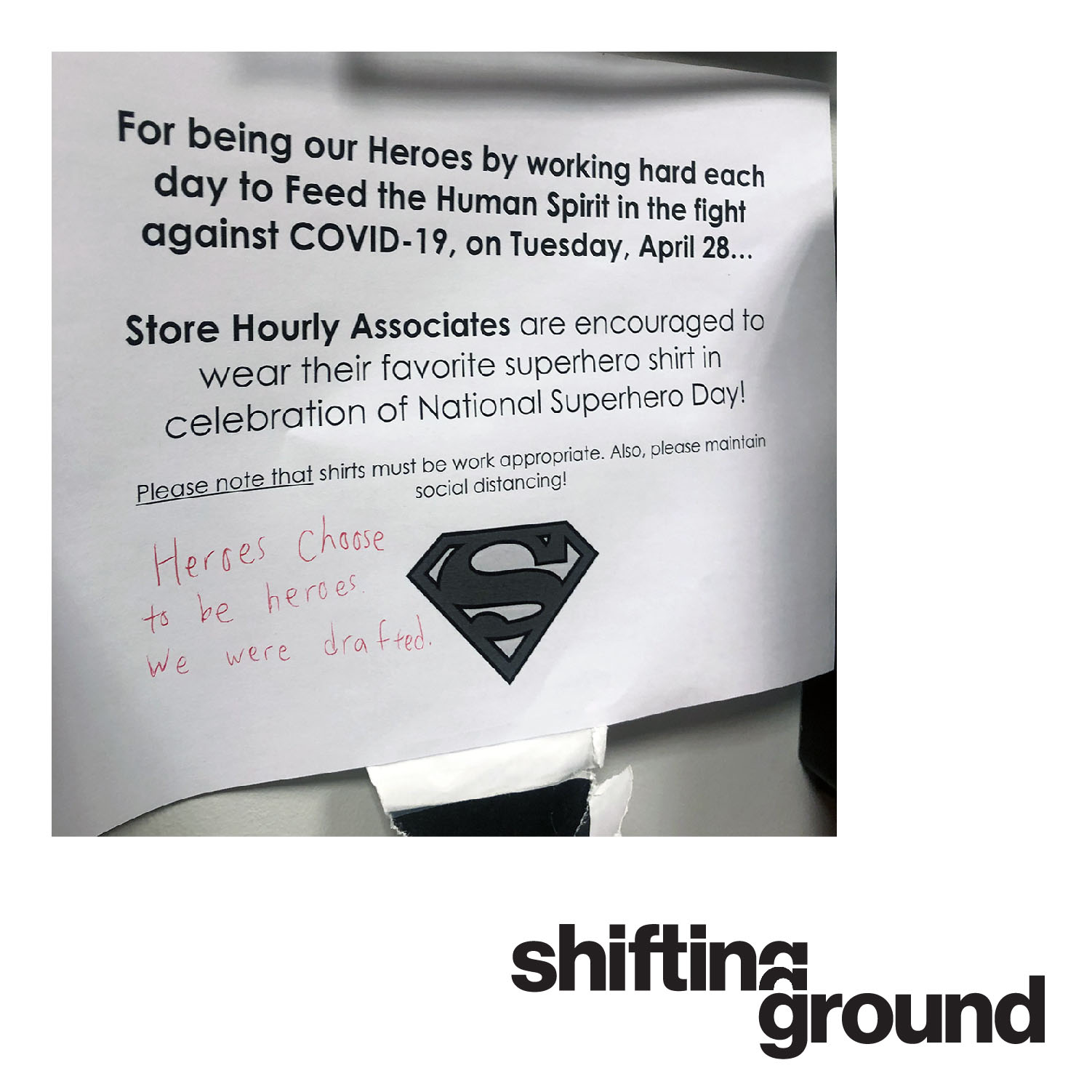
Shifting Ground was an open call for visual reports about how the events of 2020 and 2021 reconfigured our relationship with both public and private space. Select entries were posted on the League’s Instagram account.
Alex Priest sent reflections on labor, class, and design during the pandemic.
Priest wrote:
In February, I started a minimum-wage “essential” job at a grocery store. For my coworkers and me, the store is a battleground of fierce bigotry, deliberate racism, and performative pettiness—a traumatic space for the working poor, womxn, LGBTQIA+, and BIPOC. For too many customers, we, the underclass, serve as a convenient outlet for feelings of frustration, anger, and boredom. In an affluent neighborhood where customers came in carrying “Say her name!” posters after protests, I’ve witnessed astonishing mistreatment of my Black women colleagues. Customers frequently refuse to social distance or properly wear masks, endangering elderly and immunocompromised staff members. As a gay man, I’ve had to cope with deeply unsettling altercations. A common lack of common courtesy—carts and unwanted products not put away properly, used cleaning wipes left in baskets—increases employees’ exposure to the virus.
Being on the receiving end of this treatment while making low wages and receiving no meaningful benefits is extremely depressing. It can also be deadly. A recent University of Utah study found strong links between the disproportionately high COVID fatalities among Black Americans and this group’s overrepresentation in essential jobs.
The only silver lining has been our newfound designation as “heroes”—a status that only serves to keep us subordinate by encouraging a distorted sense of value.
In spaces of consumption like grocery stores, design typically serves to emphasize class differences, literally keeping essential staff in our place. How could architects—and society at large—rethink retail environments to create healthy conditions for all who spend time there, not just cater to the desires of shoppers?

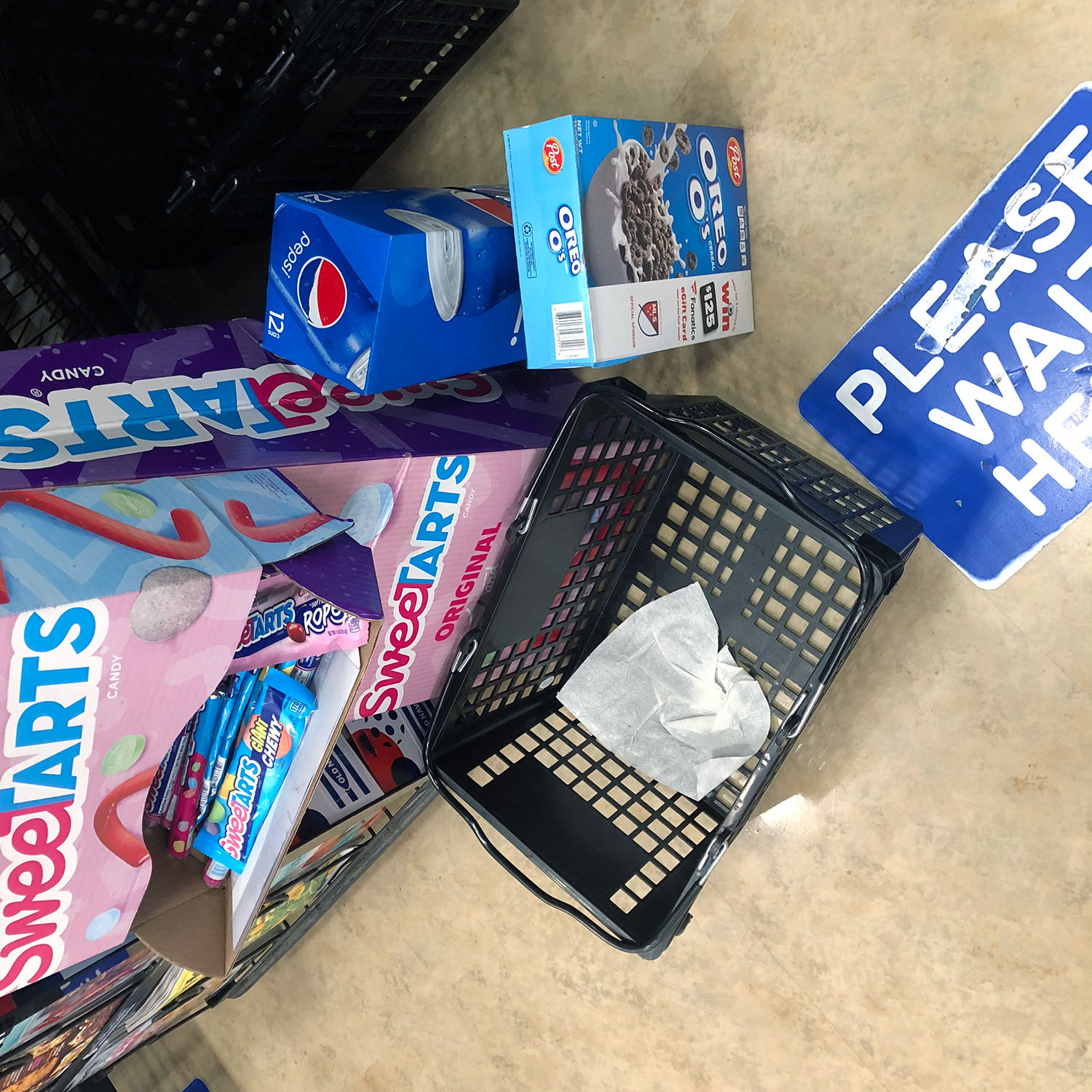
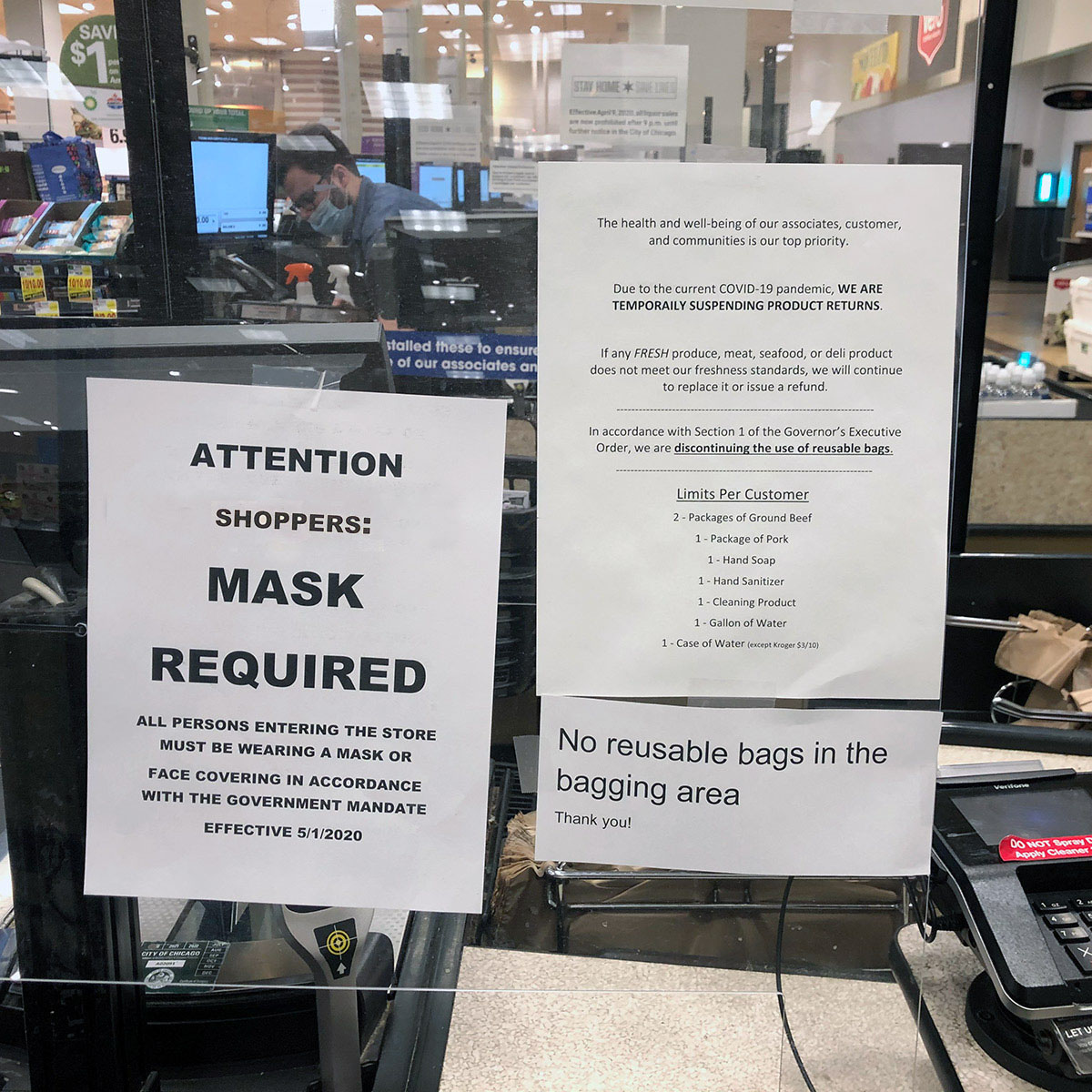
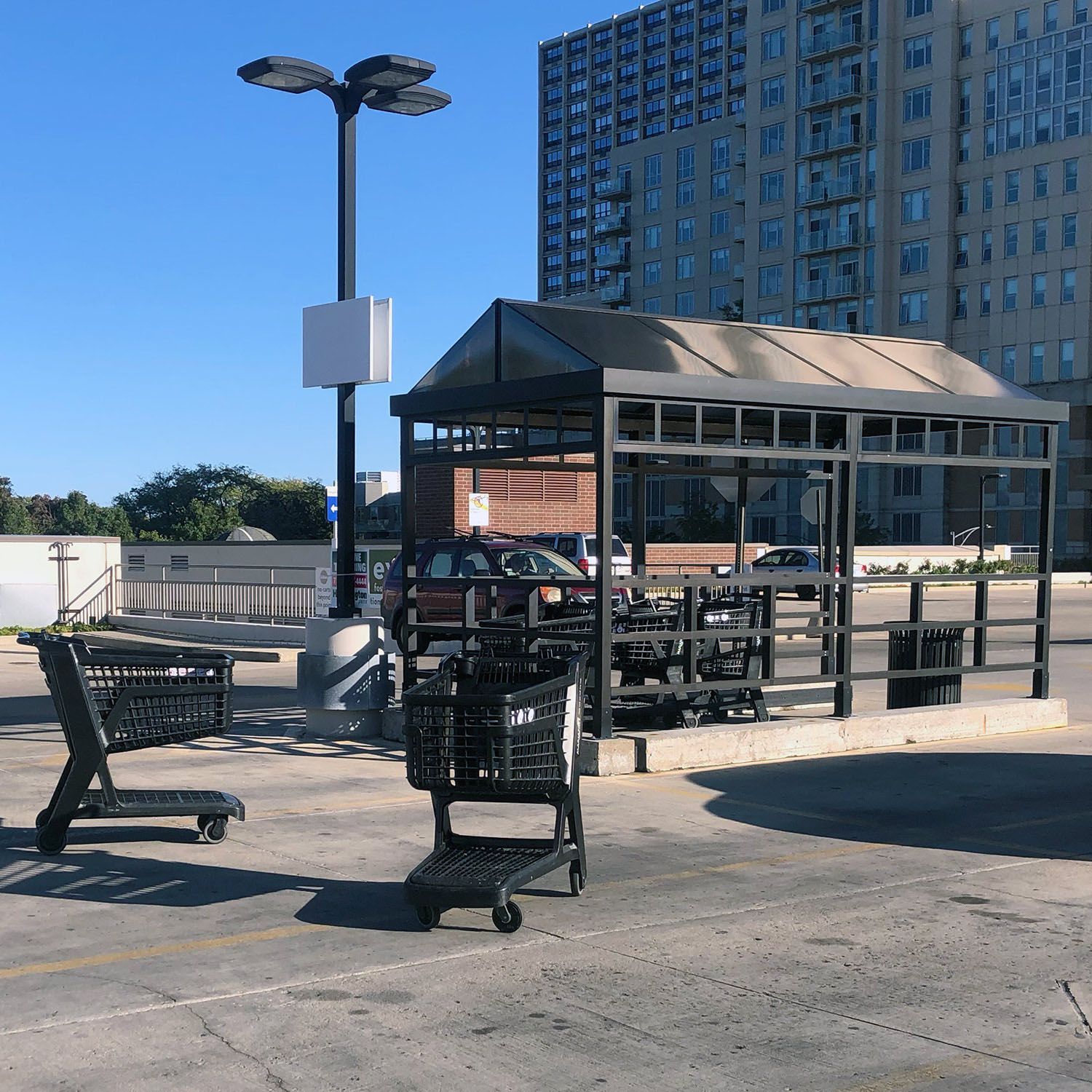
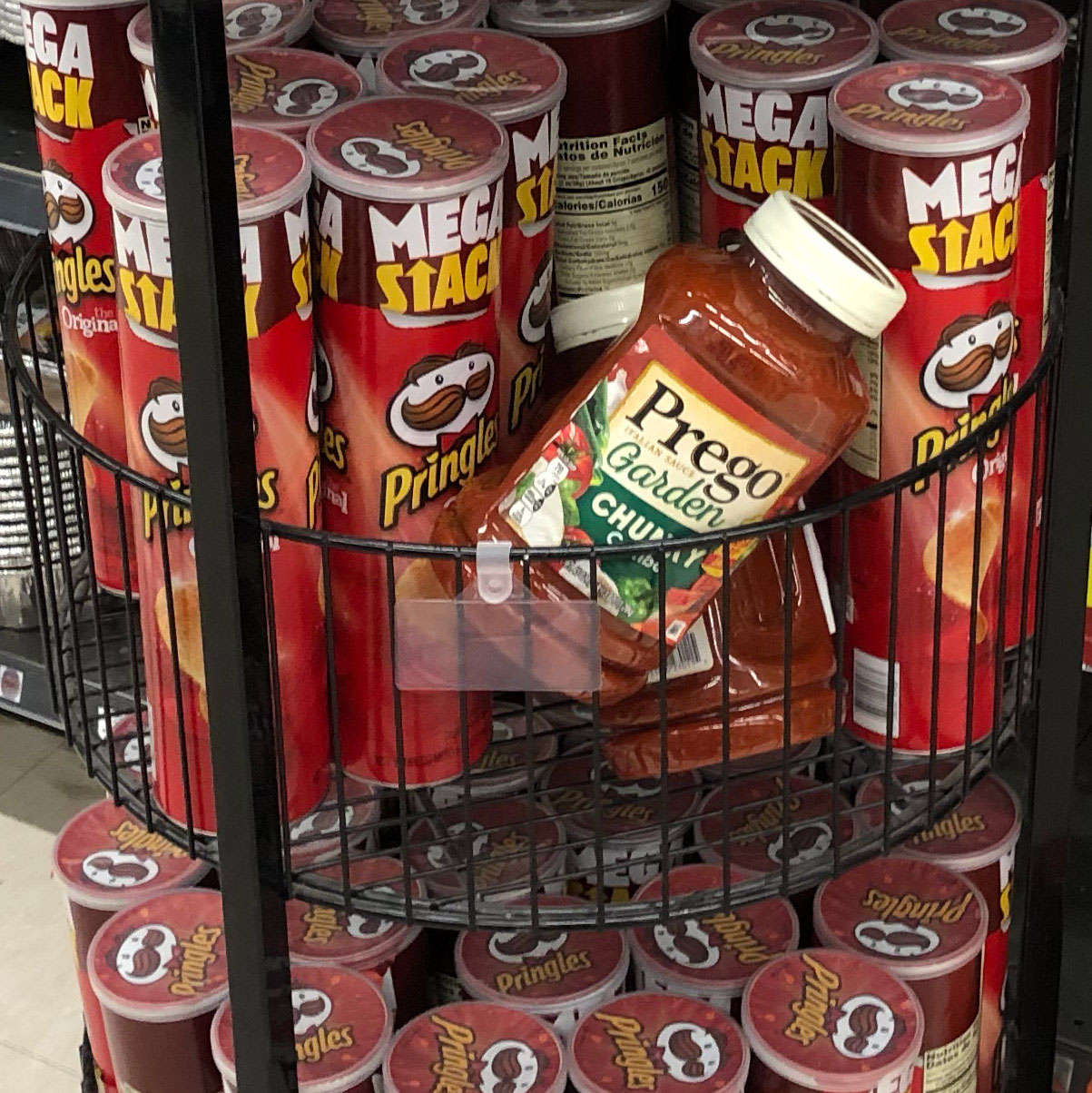
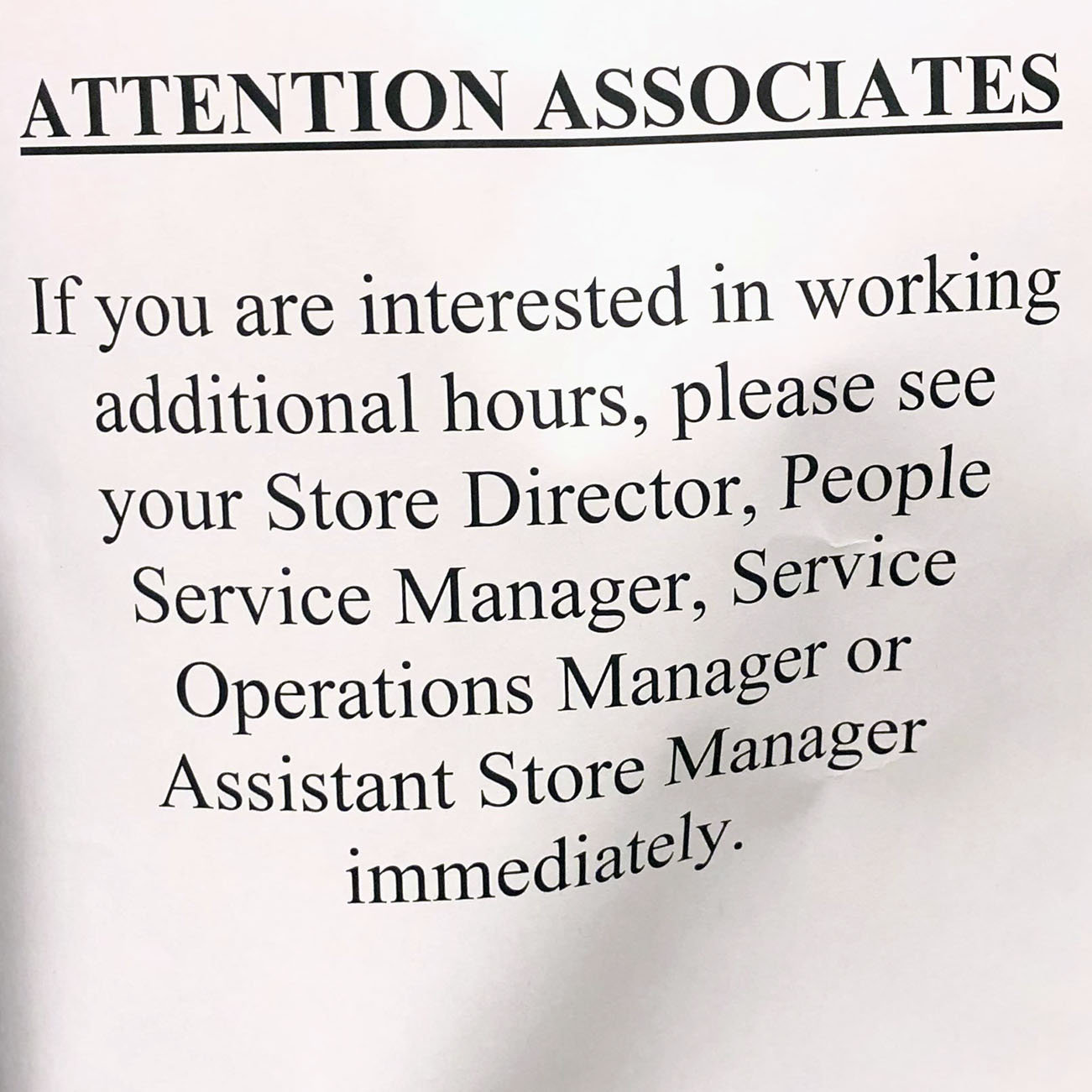
Biographies
(@crossfitcurator) is a Chicago-based “essential worker,” writer, and cultural producer from the deep rural who trained as a landscape architect.
